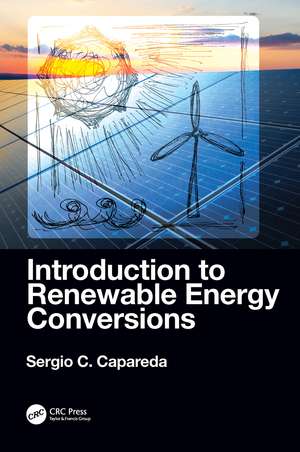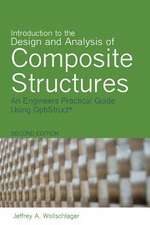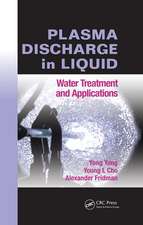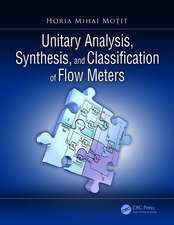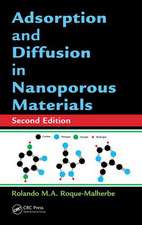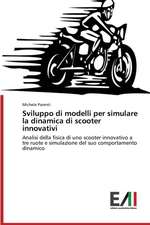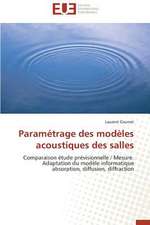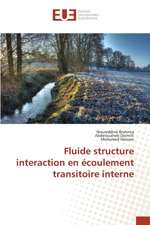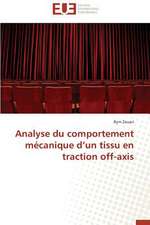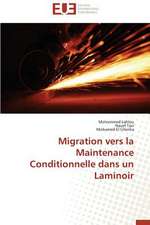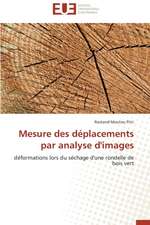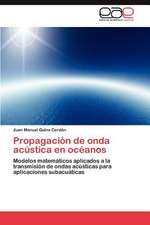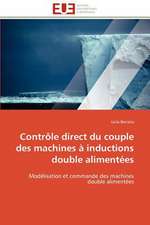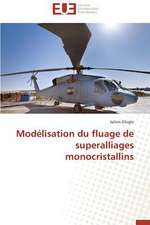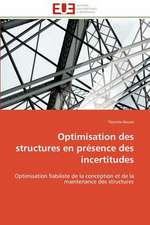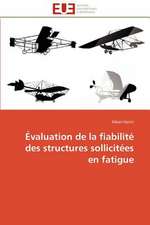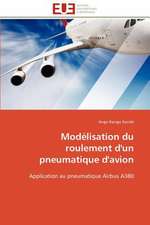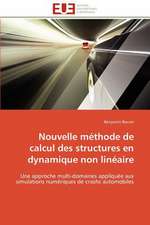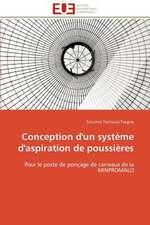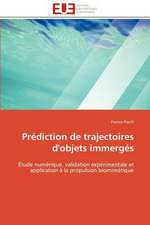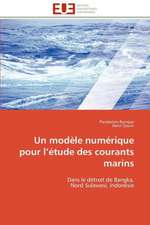Introduction to Renewable Energy Conversions
Autor Sergio Caparedaen Limba Engleză Hardback – 21 aug 2019
Key Features
- Covers all major types of renewable energy with comparisons for use in energy systems
- Builds skills for evaluating energy usage versus environmental hazards and climate change factors
- Presents and explains the key engineering equations used to design renewable energy systems
- Uses a practical approach to design and analyze renewable energy conversions
- Offers a solutions manual, PowerPoint slides, and lab activity plans for instructors
Preț: 634.50 lei
Preț vechi: 844.56 lei
-25% Nou
Puncte Express: 952
Preț estimativ în valută:
121.42€ • 126.05$ • 101.25£
121.42€ • 126.05$ • 101.25£
Carte tipărită la comandă
Livrare economică 25 martie-08 aprilie
Preluare comenzi: 021 569.72.76
Specificații
ISBN-13: 9780367188504
ISBN-10: 0367188503
Pagini: 456
Ilustrații: 109 Line drawings, black and white; 16 Halftones, black and white; 29 Tables, black and white; 125 Illustrations, black and white
Dimensiuni: 178 x 254 x 30 mm
Greutate: 0.98 kg
Ediția:1
Editura: CRC Press
Colecția CRC Press
ISBN-10: 0367188503
Pagini: 456
Ilustrații: 109 Line drawings, black and white; 16 Halftones, black and white; 29 Tables, black and white; 125 Illustrations, black and white
Dimensiuni: 178 x 254 x 30 mm
Greutate: 0.98 kg
Ediția:1
Editura: CRC Press
Colecția CRC Press
Cuprins
1. Introduction to Renewable Energy 2. Solar Energy 3. Wind Energy 4. Biomass Energy 5. Hydro Power 6. Geothermal Energy 7. Salinity Gradient 8. Fuel Cells 9. Tidal Energy 10. Wave Energy 11. Ocean Thermal Energy Conversion (OTEC) Systems 12. Human and Animal Power, and Piezoelectrics 13. Cold Fusion and Gravitational Energy 14. Environmental and Social Cost of Renewables
Notă biografică
Sergio C. Capareda is a Professor and Faculty Fellow at Texas A&M University. He holds a Bachelor of Science degree in agricultural engineering from the University of the Philippines at Los Baños (UPLB), a Master of Engineering degree in energy technology from the Asian Institute of Technology (AIT), Thailand and a PhD in agricultural engineering from Texas A & M University (TAMU), USA.
Capareda began his academic career in the field of renewable energy at the University of the Philippines at Los Baños. He developed the UPLB Biomass Energy Laboratory with funding from the Philippine Department of Energy (PDOE) and was Program Director for two World Bank Funded projects implemented by the PDOE on rural electrification and market assessment of renewable energy in the Philippines. He also developed the Biomass Energy Resource Atlas for the Philippines with funding from the US Department of Energy and the United States Agency for International Development (USAID).
Upon joining the faculty at the TAMU Department of Biological and Agricultural Engineering in 2005, Capareda was tasked to redevelop the alternative energy program of the department. He developed and established the BioEnergy Testing and Analysis (BETA) Laboratory (http://betalab.tamu.edu) that year. The BETA Lab is currently being expanded to cover research and development for other major renewable energy technologies such as solar, wind and biomass power.
Dr. Capareda has authored or co-authored more than 90 refereed journal publications since 2003, two book chapters in the field of renewable energy and air quality and a textbook entitled "Introduction to Biomass Energy Conversions." He holds a patent on Integrated Biofuel Production System and a patent for a Pyrolysis and Gasification System for Biomass Feedstock, which has now been licensed to private companies with various heat and power generation projects from various biomass resources such as wood chips, poultry litter, municipal sludge and municipal solid wastes (MSW).
A three-time recipient of the Returning Scientist Awardee from the government of the Philippines and a two-time recipient of the USAID-Stride Visiting Professorship Award, Dr. Capareda has been providing continuous support to various universities in the Philippines as a key consultant on their renewable and air quality teaching, research and development initiatives.
Capareda is a licensed Professional Engineer in Texas and an active member of the American Society of Agricultural and Biological Engineers (ASABE).
Capareda began his academic career in the field of renewable energy at the University of the Philippines at Los Baños. He developed the UPLB Biomass Energy Laboratory with funding from the Philippine Department of Energy (PDOE) and was Program Director for two World Bank Funded projects implemented by the PDOE on rural electrification and market assessment of renewable energy in the Philippines. He also developed the Biomass Energy Resource Atlas for the Philippines with funding from the US Department of Energy and the United States Agency for International Development (USAID).
Upon joining the faculty at the TAMU Department of Biological and Agricultural Engineering in 2005, Capareda was tasked to redevelop the alternative energy program of the department. He developed and established the BioEnergy Testing and Analysis (BETA) Laboratory (http://betalab.tamu.edu) that year. The BETA Lab is currently being expanded to cover research and development for other major renewable energy technologies such as solar, wind and biomass power.
Dr. Capareda has authored or co-authored more than 90 refereed journal publications since 2003, two book chapters in the field of renewable energy and air quality and a textbook entitled "Introduction to Biomass Energy Conversions." He holds a patent on Integrated Biofuel Production System and a patent for a Pyrolysis and Gasification System for Biomass Feedstock, which has now been licensed to private companies with various heat and power generation projects from various biomass resources such as wood chips, poultry litter, municipal sludge and municipal solid wastes (MSW).
A three-time recipient of the Returning Scientist Awardee from the government of the Philippines and a two-time recipient of the USAID-Stride Visiting Professorship Award, Dr. Capareda has been providing continuous support to various universities in the Philippines as a key consultant on their renewable and air quality teaching, research and development initiatives.
Capareda is a licensed Professional Engineer in Texas and an active member of the American Society of Agricultural and Biological Engineers (ASABE).
Descriere
Introduction to Renewable Energy Conversions discusses major renewable energy conversion technologies with a global approach to energy resource assessment. Readers follow step-by-step procedures for selecting and integrating renewable energy options for a given location on a long-term basis, and selection of appropriate renewable energy strategies.
